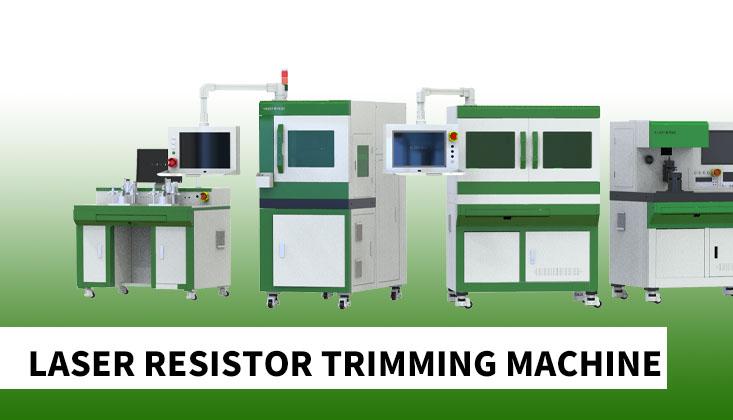In the realm of microelectronics, thick film hybrid circuits play a vital role in producing compact, high-performance components for aerospace, medical, automotive, and industrial applications. A key part of this process involves laser trim resistors, a technology that ensures ultra-precise resistance values using non-contact laser processing.
What Is a Laser Trim Resistor?
A laser trim resistor is a resistor that is adjusted after deposition using a focused laser beam. The laser removes a small portion of the resistive material to increase resistance to a target value, enhancing the accuracy and reliability of the circuit.
These resistors are typically part of thick film hybrid circuits, where miniaturization and precision are essential.
Laser Trimming Machine and Its Role
The laser trimming machine is the critical equipment used for the resistor trimming process. It operates by directing a high-energy laser onto the resistor surface, modifying its geometry and resistance without physically contacting the component.
Benefits of Using a Laser Trimming Machine:
-
High precision and repeatability
-
Non-contact processing reduces mechanical stress
-
Ideal for trimming both thin and thick film resistors
-
Supports dynamic trimming under live test conditions
The automation and accuracy of laser trimming make it the gold standard in the thick film process.
Understanding the Thick Film Process
The thick film process involves screen-printing conductive, resistive, and dielectric pastes onto a ceramic or glass substrate. After drying and firing, these printed elements form the foundational layers of hybrid circuits.
In this process, resistors are often designed with tolerances that require fine-tuning post-production — this is where the laser trimming machine becomes essential.
Advantages of Thick Film Hybrid Circuits
-
High circuit density and reduced footprint
-
Excellent thermal conductivity
-
Long-term stability in harsh environments
-
Cost-effective for low to mid-volume production
With the addition of laser trim resistors, the performance consistency of these circuits is significantly enhanced.
Applications of Laser Trim Resistors in Thick Film Hybrid Circuits
-
Automotive control systems
-
Aerospace instrumentation
-
RF and microwave modules
-
Medical diagnostic equipment
As demand grows for miniaturized and reliable electronic assemblies, combining thick film process technologies with laser trimming ensures functionality and precision.
FAQ: Laser Trimming & Thick Film Circuits
Q1: What accuracy can laser trimming achieve?
Laser trimming typically achieves resistor tolerances as tight as ±0.1% or better, depending on equipment and process control.
Q2: Can a laser trimming machine trim in real-time?
Yes. Advanced systems support closed-loop trimming under powered conditions for dynamic performance feedback.
Q3: Is laser trimming suitable for thick film hybrids only?
While ideal for thick film hybrid applications, laser trimming is also used in thin film and semiconductor processes.
Q4: How does trimming affect circuit stability?
Laser-trimmed resistors maintain high long-term stability since the process does not introduce significant thermal or mechanical stress.
Q5: Are all resistors in thick film circuits laser trimmed?
Not all, but precision-critical components often undergo laser trimming to meet design specifications.

